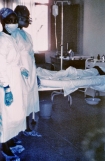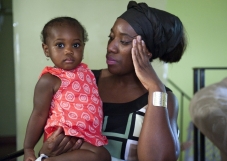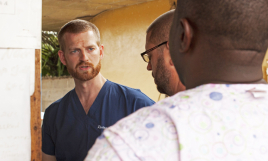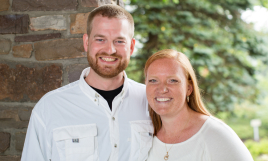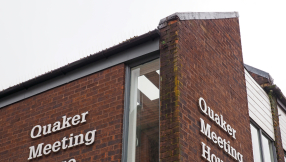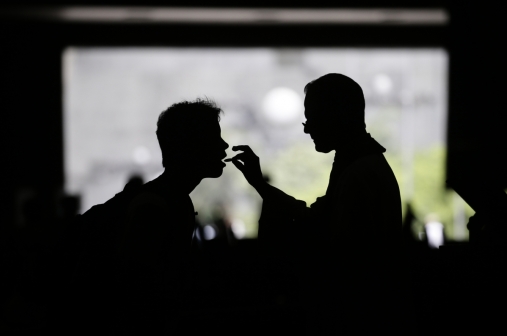
Despite the advice of senior clergy, many Nigerian churches are risking the spread of Ebola in the way they share Holy Communion, the Nigerian Guardian reports.
In August, both Anglican and Catholic Church leaders were advised against the typical practice in Nigerian churches, involving placing the Communion wafer directly into the parishioner's mouth.
However, many churches are still drinking from the same Communion cup and priests are breaking and dividing the bread with their bare hands, the Guardian found in a study carried out last weekend.
In a statement in August, Alfred Adewale Martins, the Catholic Archbishop of Lagos said: "We have now deemed it necessary to permit in the interim the reception of Holy Communion in the hand as an extraordinary practice while the Ebola Virus alert is on. We maintain however, that in the Archdiocese of Lagos, the ordinary way of receiving Holy Communion remains Communion-on-the-tongue."
However, he added that those who wished to continue to receive communion on the tongue, should be allowed to do so, saying: "Their personal devotion to the Eucharist must be respected."
The Archbishop of Abuja, Cardinal John Olorunfemi Onaiyekan instructed congregations to avoid shaking hands in the sharing of the peace.
The Anglican Primate of the Church of Nigeria, the Most Rev Nicholas Okoh also warned against sharing the peace, and said that Anglican churches should no longer drink from the same cup. Instead he encouraged churches to use the practice of 'intinction' – in which the bread is dipped into the wine, or small individual cups.
But it appears that not all churches are following the recommendations; the Guardian said that "most churches are yet to make any changes" to procedure.
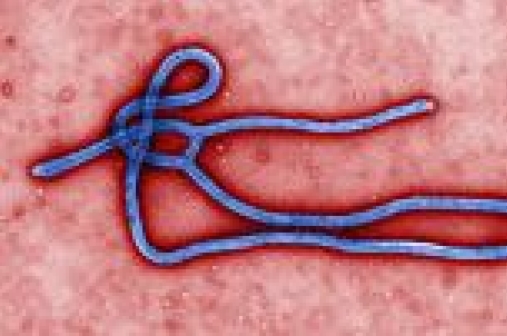
Ebola is highly infectious, as a small amount of the disease can prove lethal, but not especially contagious, as it requires close contact with bodily fluids, such as saliva. But this does make the sharing of a Communion cup a particular health hazard.
The virus spread to Nigeria in July, having started in Guinea in January, and spread to Liberia and Sierra Leone. There have now been 21 cases in Nigeria, and seven deaths, but in comparison with other affected countries, the spread has been relatively contained so far.
Public health messages about combatting Ebola have been difficult to disseminate, particularly in the other west African countries affected. There was initial scepticism that regular washing with soap and water, which kills virus, would be effective in preventing transmission. Within some churches there was also the feeling that Ebola was God's judgement.
The World Health Organization estimates that 5,000 people have now been infected with the Ebola virus, and 2,400 have died, making it the worst outbreak on record. The virus can have a fatality rate of up to 90 per cent, however the rate at present is significantly lower.






